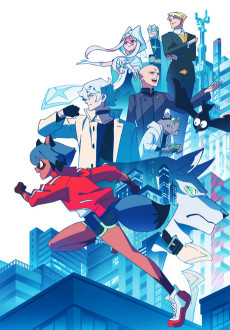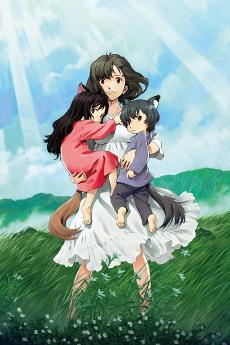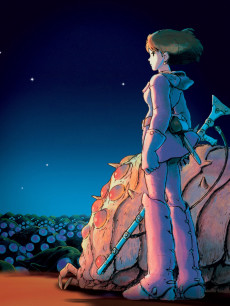HEISEI TANUKI GASSEN PONPOKO
MOVIE
Dubbed
SOURCE
ORIGINAL
RELEASE
June 13, 1994
LENGTH
111 min
DESCRIPTION
Faced with the destruction of their habitat due to the growth of Tokyo, a group of tanuki try to defend their homes. They decide to use their transforming talents to try to hold back the new development. Two of them, especially skilled at transforming, are sent to Shikoku to enlist the help of three sages. Meanwhile, the rest of them do their best to disrupt the construction site, at first causing accidents, and then actually haunting the site. However, the humans are very persistent, and soon the tanuki are forced to use more and more extreme measures to save their home.
(Source: Anime News Network)
CAST

Narrator
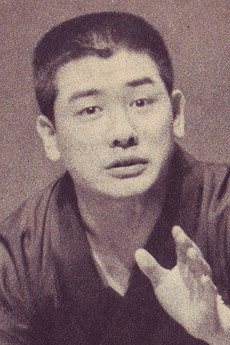
Shinchou Kokontei
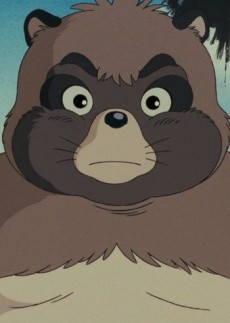
Shoukichi
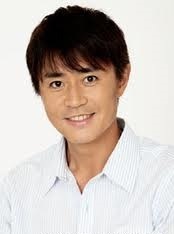
Makoto Nonomura
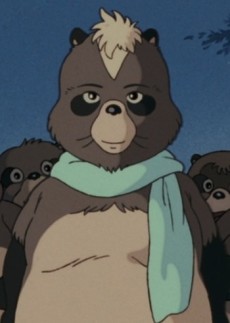
Tamasaburou
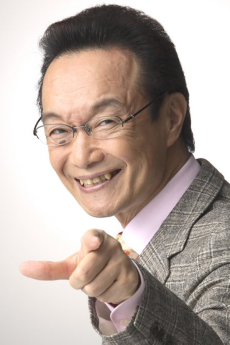
Akira Kamiya
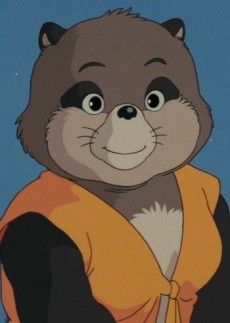
Okiyo

Yuriko Ishida
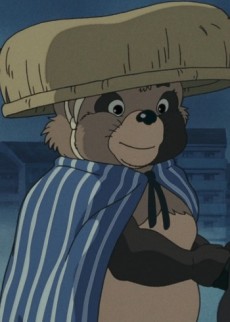
Bunta
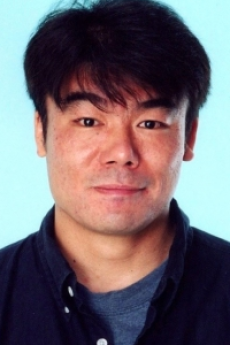
Takehiro Murata
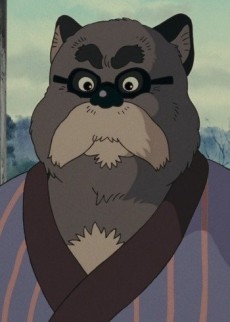
Rokudaime Kinchou
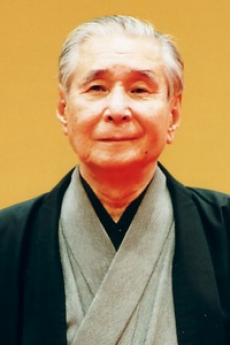
Beichou Katsura
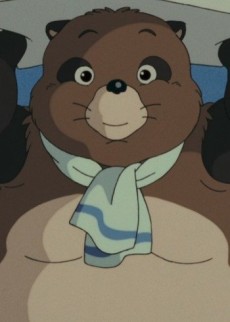
Ponkichi

Kobuhei Hayashiya
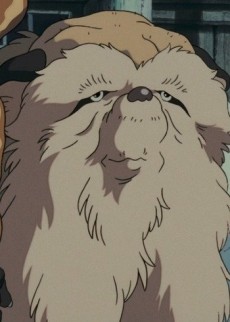
Tasaburou Hage-tanuki
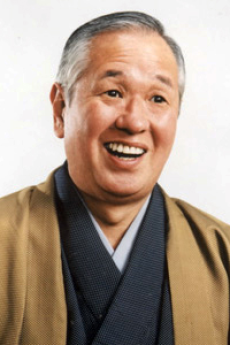
Katsura Bunshi V
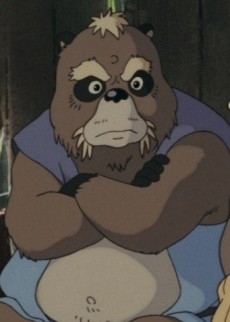
Seizaemon
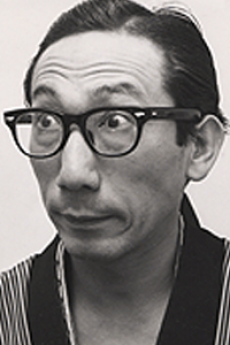
Norihei Miki
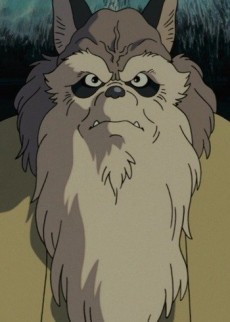
Inugami Gyobu
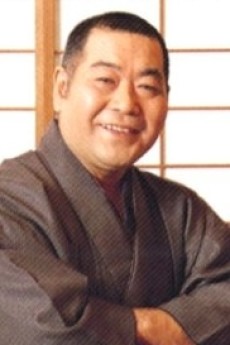
Gannosuke Ashiya
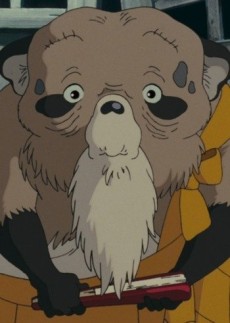
Tsurugame Oshou
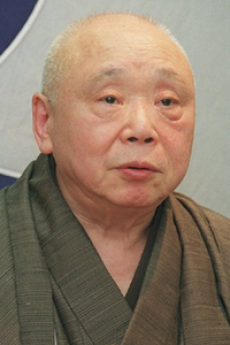
Kosan Yanagiya
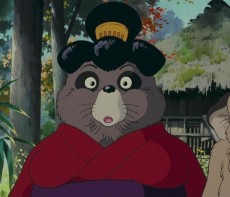
Oroku
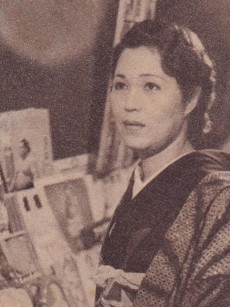
Nijiko Kiyokawa
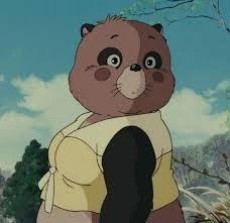
Hanako
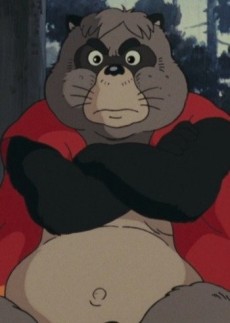
Gonta
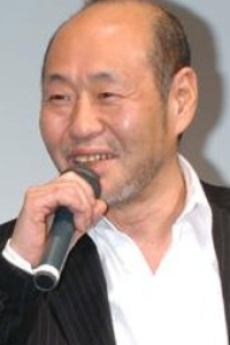
Shigeru Izumiya
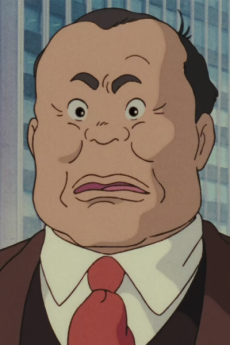
Wonderland no Shachou

Takehiro Murata
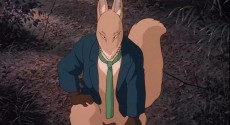
Ryuutarou
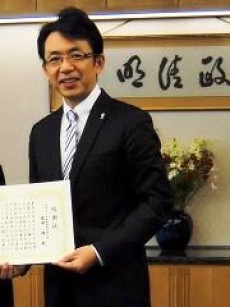
Akira Fukuzawa
REVIEWS

Juliko25
40/100I really wish my college class didn't show this. Takahata, what were you thinking?!Continue on AniListI had absolutely zero interest in watching Pom Poko. I never intended on watching it, I never intended on caring about it, I honestly didn't think I'd like it, and I had other anime to watch. Plus, an anime entirely about tanuki just didn't appeal to me, and probably never will. I was so sure I would go through my life never watching this movie...unfortunately, I took a class on Japanese supernatural creatures in college, and on the last day of classes, my teacher made us watch this...and my fears were correct: not only was this movie disappointing, but watching it just made me feel drained and uneasy. The only time I was happy was when this movie finally ended or was close to ending. Honestly, I can't stand this movie and I hope to never have to see it ever again.
The story is about a bunch of tanuki who live their normal lives in peace...until humans come into their forests and knock everything down so they can make houses and a new neighborhood for humans. This makes the tanuki angry, and they try to fight off the humans as much as possible in order to preserve their homes, even going as far as to use their shapeshifting powers. Unfortunately, some of the tanuki have forgotten how to shapeshift and have to learn from the masters in order to do so. Some will stop at nothing to fight off the humans, some even suggest that they kill humans, and others just want to save their homes. Yeah, it's a pretty heavily environmentalist movie.
Honestly, this movie could have been great, and it does have a lot of things people would like: animal characters, great Ghibli animation, a wonderful soundtrack, and an aesop about protecting the environment. Unfortunately, this movie fails so hard in so many ways. For one, the movie barely shows anything. All it does is jump from scene to scene for just about no reason just as people are getting to understand what the heck is going on. It doesn't help that there's an obnoxious narrator who is present throughout THE ENTIRE MOVIE who NEVER shuts up about anything! I think the movie would have benefitted so much had they cut out the narrator! Instead of having that narrator info-dump about the tanuki losing their homes, why not show the tanuki losing their home and their reactions to it! Well, technically, they do, but it's so forced in and heavy handed that the movie gives us no reason to care about the characters or their plight.
Speaking of the characters, I'm not afraid to say this: the characters in this movie don't feel like actual characters. They feel more like props to force feed the audience the story's message than anything. All of them are extremely one note, bland, one-dimensional, and pretty much never develop throughout the entire movie. One character, Gonta, is especially terrible because all he does is whine about how he doesn't get to kill any humans. Almost all of the characters are incredibly mean spirited, and the ones who aren't don't do anything to make us care about them or like them. The only character I even remotely liked was the one tanuki lady in the red kimono. She was a strict teacher, but had moments where she was hopeful, told jokes, had fun, and genuinely cared about her elders and the students, so she wasn't being a strict teacher for the sake of being strict. But she didn't get enough screen time to make me like her. All of the other characters are just either ciphers or mouthpieces, nothing else.
The animation is good as usual, and the music is the same, and...honestly, I don't have a problem with tanuki using their testicles in this movie. They're clearly using them for non-sexual purposes, and if they do use them for sexual purposes, its always consensual and never played for fanservice or ecchiness. I know some people would be absolutely horrified by this, but there are worse things out there than mythical cartoon animals using their balls to transform themselves and fight humans. Besides, animals using their sexual organs is common, and it's never portrayed as fanservice-y in any anime I've seen. I DO, however, have a problem with the movie's execution of its morals. It has a very heavy message about how humans hurt the environment with their housing projects and technology, but it's so heavyhanded and forceful that it feels like its force-feeding its message to us rather than letting us interpret it for ourselves. Above all else...the tanukis' struggle is all for naught. We pretty much know that they're not gonna win no matter what, so the question we should be asking is...was it all worth it? What should we even take from this? I honestly don't know, but I do want the two hours I spent watching this back.
Want to know the worst thing? This was penned by Isao Takahata, the man behind Grave of the Fireflies and Tale of Princess Kaguya, among other films. He's usually a lot more restrained than this, so to see one of his works be so ham-handed and cringe-inducing is extremely unlike him. Needless to say, I didn't like this movie. At all. All watching it did was make me feel drained. Now I know what the TVTropes term Darkness-Induced Audience Apathy is, because this movie pretty much exemplifies it.
Not Ghibli's best work. I'd recommend Nausicaa, Kaguya, or When Marnie Was There over this. It's just...not a good movie, and not even good animation and music can save it. It was a massive chore to watch, and a massive waste of time.

seanny
85/100Depicting a battle of urban and rural, the largely misunderstood Pom Poko is Studio Ghibli's manifesto in movie formContinue on AniList
Pom Poko stands out among Isao Takahata’s films with a strong, central conflict driving its animated whimsy. It doesn’t take itself too seriously; it’s chock-full of sight gags and colorful references to Japanese folklore. Reviewers often say that it has a message, but I would argue that it has a zeitgeist and not the garden variety environmentalism that it’s commonly ascribed with. It’s the same zeitgeist that undergirds numerous other Ghibli flicks and by extension their brand; in one respect, it is the truest and most plain-spoken of them, resembling something of a manifesto.
Ironically, it is also the most misunderstood and controversial Ghibli film in the west due to the culture shock barrier — the tanuki of mythology with their big sack energy and the metaphorical role they play in the film which may be lost on western audiences unaware of Japan’s great post-war migration from the countryside to the city.

Tokyo's limitless urban sprawl has reached the distant forests of the mythological tanuki; woodland critters with a latent ability to shapeshift and a penchant for pranks. As construction projects turn their mountain forests into barren mounds awaiting concrete apartment blocks, what remains of the local clans unite and rediscover the art of transformation. With their powers, they spook the humans, sabotage construction equipment and cause worksite mayhem in a series of increasingly imaginative and audacious stunts, drawing on the oni and yōkai of folklore. Contrary to Takahata's trademark anime neorealism, Pom Poko cuts loose with its cartoon comedy and absurd ideas; its deft mixture of laughs, satire, apocalyptic overtones and cultural criticism make it my favorite Takahata flick.
Try as the tanuki might to impede it, the march of progress cannot be stopped. The old men of Ghibli would know. Spending an entire career in Tokyo's concrete jungle, as Takahata, Toshio Suzuki, and Hayao Miyazaki have, may make a person wistful for a simpler, imagined rural lifestyle. Ghibli film after film sells this particular fantasy — an escape to a faraway Japanese or European countryside where its quietude and natural splendor offers something essential to the human spirit that was perhaps lost in the hustle and bustle of city life.
Pom Poko is the most direct expression of this metropolitan claustrophobia — here, the idealized countryside is at war with Tokyo's urban sprawl. The film's full name is approximately "Heisei-era Tanuki War Ponpoko". In this unwinnable campaign, the tanuki undergo stages of grief with the retreat of their heritage to the cold concrete of modernity. They not only wage war, but simultaneously negotiate and adapt, if not succumb to despair.
In one of the earliest scenes, they secure burgers from McD's for their first taste of modern living. They procure a functional television from a roadside dump to study human culture and gauge the success of their supernatural terrorism tactics on the evening news. In various outings, they shapeshift into humans and try taking on menial jobs.

Adapt or die. Pom Poko is not a call to save the (non-endangered) Japanese raccoon dog or the (extremely plentiful) Japanese mountain wilderness. The mythological tanuki’s plight is ultimately “our" plight, and the film emphasizes their unreality by continually showing realistically drawn raccoon dogs in contrast. Instead, the fantastical tanuki are symbols of traditional Japanese culture, values, and a lifestyle “at harmony with nature”, and it’s those things that are endangered by urban life, argues the film. Their shapeshifting pranks force the witless humans to confront the culture they've discarded. At one point they use their collective power to cast an illusion across the urban landscape depicting what once was — an idyllic, Ghibli-esque farming village, entrancing the cityfolk under a spell of nostalgia.
The most skilled tanuki eventually become incognito salarymen, chugging energy drinks to fight off the fatigue inherent in the joyless motions of modernity; their identity and heritage sacrificed on its altar. But after the workday is done, they return to their forests and frolic in the fields. Such probably wasn’t the daily routine for a Ghibli staffer, but they could certainly dream.

_Ghibli store in Kawagoe, 2017; their idyllic countryside fantasy beckons._ Addendum:
Watching it dubbed would spoil the film's essential Japanese flavor. The ever-present voiceover narrator is a rakugo master and not a stock anime VA, for example.
SIMILAR ANIMES YOU MAY LIKE
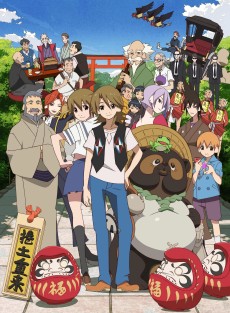 ANIME ComedyUchouten Kazoku
ANIME ComedyUchouten Kazoku MOVIE ActionMononoke-hime
MOVIE ActionMononoke-hime MOVIE AdventureNeko no Ongaeshi
MOVIE AdventureNeko no Ongaeshi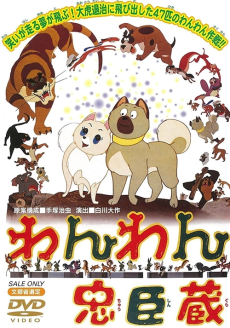 MOVIE ActionWan Wan Chuushingura
MOVIE ActionWan Wan Chuushingura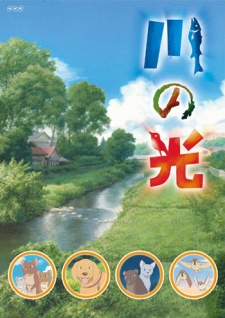 SPECIAL AdventureKawa no Hikari
SPECIAL AdventureKawa no Hikari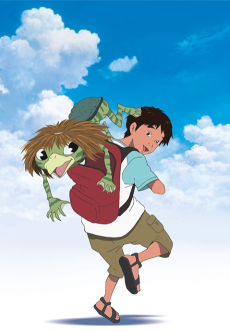 MOVIE AdventureKappa no Coo to Natsuyasumi
MOVIE AdventureKappa no Coo to Natsuyasumi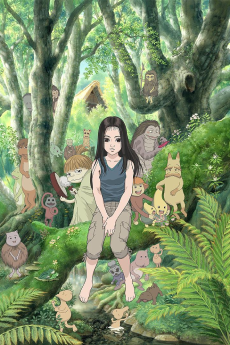 SPECIAL DramaMiyori no Mori
SPECIAL DramaMiyori no Mori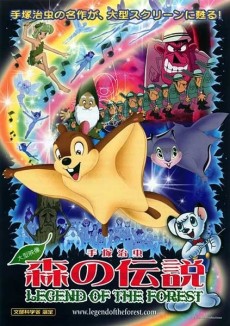 MOVIE AdventureMori no Densetsu
MOVIE AdventureMori no Densetsu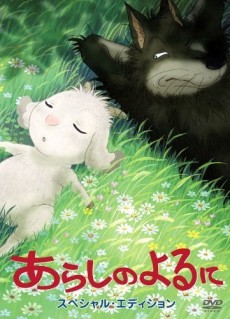 MOVIE AdventureArashi no Yoru ni
MOVIE AdventureArashi no Yoru ni
SCORE
- (3.5/5)
TRAILER
MORE INFO
Ended inJune 13, 1994
Main Studio Studio Ghibli
Favorited by 360 Users


